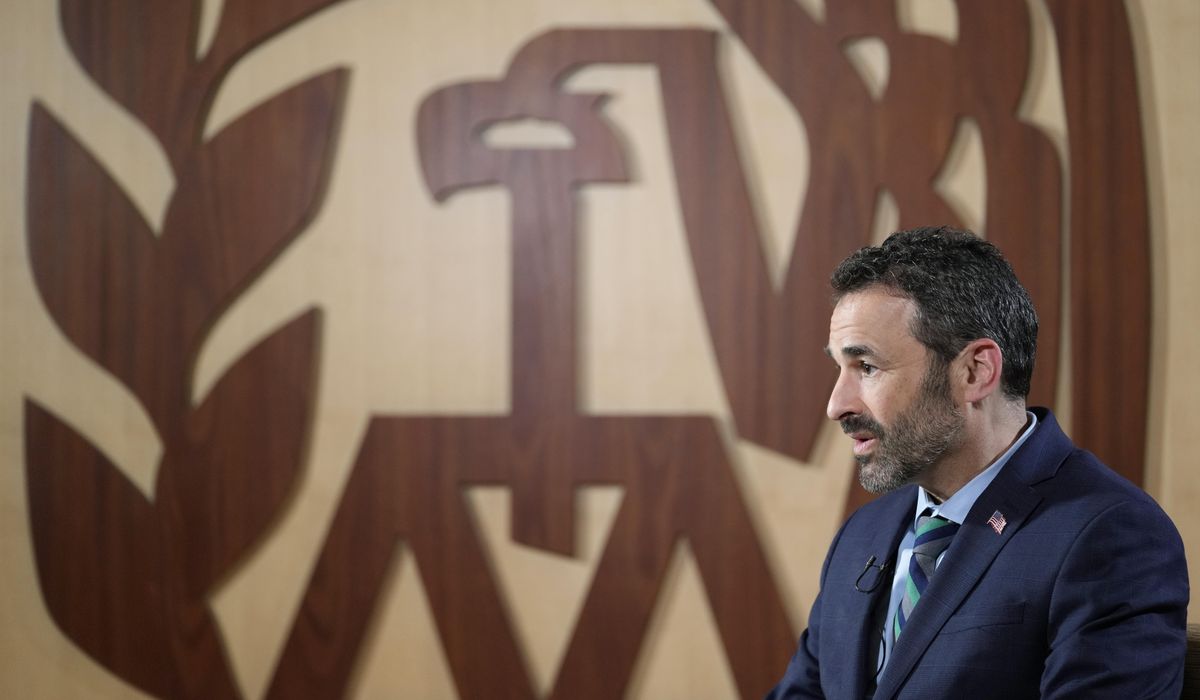


IRS Commissioner Danny Werfel said Thursday the agency has made huge strides in improving customer service but it will soon need more money if Congress wants continued progress for the rest of this decade.
The warning comes just two years after Capitol Hill allocated tens of billions of dollars to the IRS to fix years of unanswered phone calls, ancient technology, backlogged returns and low audit rates.
Mr. Werfel said he can deliver on higher audits for the rich, but said his funding for technology upgrades runs out by 2026. That means customer service, which finally rebounded this year to an 88% level of service, could drop back to just 30%, leaving most taxpayers unable to reach anyone for assistance.
He complained that Congress has already clawed back some of the $80 billion it allocated in President Biden’s 2022 budget-climate law. He said the agency wants lawmakers to restore that money and make it permanent.
“The IRS will continue focusing on making improvements and efficient use of funding,” Mr. Werfel said. “But to stress the importance of continuing this momentum, the IRS will continue working to make a difference for the nation’s taxpayers. At the same time, it’s critical that the IRS has stable, secure funding to allow technology modernization and taxpayer service improvements to continue into the future.”
The commissioner said if he gets the full $104 billion that he’s asking for over the next 10 years, it would mean an additional $341 billion back to Uncle Sam in higher tax collections.
Republicans say that’s what worries them. They envision a supercharged IRS with so much money and power it sweats dimes out of average taxpayers.
Mr. Werfel said that’s not his goal.
He said the money is already being used to go after wealthy tax cheats while keeping audit rates for taxpayers making under $400,000 at “historically low levels.”
Mr. Werfel‘s call for money came as he released a new Strategic Operating Plan that envisions nearly tripling audit rates, from 8.8% to 22.6%, for corporations with assets of at least $250 million a year. It will increase audit rates on wealthy individuals from 11% in 2019 to 16.5% in 2026.
The operating plan lays out the IRS‘s objectives for coming months, including “dramatically” improving services with better live assistance, simplified notices and new digital tools. The IRS also wants to expand its workforce.
The agency has already gone from about 79,000 full-time equivalent positions in 2022 to 90,000 this year. It plans to add another 14,000 positions by 2029, to reach 102,500 people.
“We believe that figure represents a ‘right-sized’ IRS, reflecting the needs to serve taxpayers and responsibly enforce the law given the complexity of the nation’s tax laws,” he said. “That number won’t even be a record high for the IRS workforce — it’s still well below the numbers from the late 1980s and early 1990s.”
Mr. Werfel said it’s a far cry from the 87,000 people that Republicans, using administration calculations, had figured would be hired. The commissioner also said the new hires span the range of jobs and aren’t all “armed agents,” as some Republicans had also suggested.
• Stephen Dinan can be reached at sdinan@washingtontimes.com.
